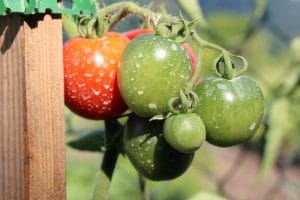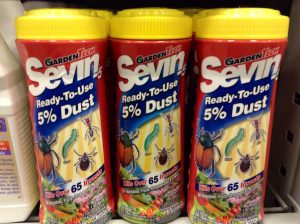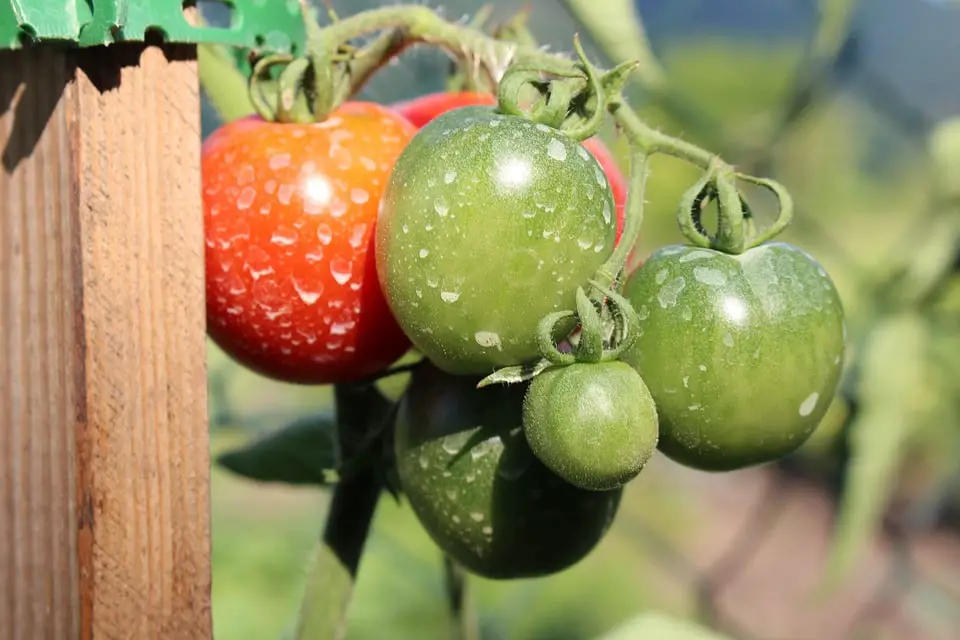Difference Between Insecticide and Pesticide?
Insecticides are a type of pesticide used to target and repel insects such as wasps, ants, and snails, among others while Pesticides is an umbrella term that refers to chemicals used in killing fungus, pests, insects, slugs, snails and weeds, among others.
It’s also used in preventing plant disease. In fact, pesticides are useful in preventing the spread of plant diseases. Examples of pesticides include herbicides, molluscicides, insecticides, and fungicides. Others include miticides, and acaricides used to control ticks and mites.
You also have rodenticides for rats, bats, and mice, while nematicides control soil nematodes.
Introduction
The current population of the world is 7.757 billion. As the world’s population continues to grow, more food is needed to meet the growing demand. This has led to an increase in pesticide use to increase crop yield per acre.
For example, farmers planting soybeans are applying pesticides to kill the rest of the plants and prepare the field for planting. This exercise is usually carried out twice a year. With this method, hundreds of gallons of pesticides get introduced into the environment. While these chemicals are useful in repelling insects and pests, they repel or kill useful insects such as bees.

In this article, we explain the difference between insecticides and pesticides. We also discuss the effects of pesticides and insecticides plus when to use a pesticide and insecticide.
Effects of Pesticides
Pesticides have acute and chronic adverse effects. Examples of acute adverse effects of pesticides include rashes, blindness, nausea, blisters, dizziness, diarrhea, and death. Chronic health effects of pesticides include birth defects, cancers, reproductive harm, immunotoxicity, and neurological toxicity, among others.
For those who experience acute effects of pesticides, exposure to the poisons is immediate and short term. What you need to know is that there are people who are more vulnerable than others. This is true for those exposed for a few seconds or minutes.
For example, people with asthma have severe reactions in comparison to those who don’t have asthma. The reason for this is that pesticides contain certain chemicals or compounds which trigger immediate reactions in people with asthma.
These chemicals include organophosphate, pyrethroid, and carbamate. In most cases, pesticide poisoning goes unreported. The symptoms of pesticide poisoning mimic symptoms of the flu or cold.
What you need to know is that the acute effects of pesticides may not be severe enough to prompt the affected person to seek medical attention. Still, it is essential to seek medical attention immediately.
Chronic effects of pesticides occur weeks, months, or years after exposure. This makes it difficult to link the effects on pesticides. In a 2015 study, researchers evaluated the effects of pesticide exposure on 246 farmers.
The tests included neurological exams and blood tests done by medical doctors. What they discovered is that exposure to pesticides affects the liver, blood cells, and nervous system.

Effects of Insecticides
Insecticides help in repelling or controlling insects in the home garden. But if not disposed of properly, or misapplied, it has negatives effects on the health of the user. For example, the user may experience an acute allergic reaction.
This occurs 24 hours after exposure. The allergic reactions include difficulty breathing, nose, and skin irritation, as well as the watering of the eyes. These allergic reactions may not occur in all people using insecticides.
Another effect of insecticides is chronic poisoning. Chronic poisoning occurs when the user gets exposed to small amounts of insecticides over a long period. Typically, this type of poisoning causes neurological and physical effects.
They include slow movement, nervousness, a decline in good health, and twitching. Chronic poisoning can be challenging to treat. This is true where the source of the poisoning is unknown.
Insecticides have effects on local wildlife too. When users apply insecticides when heavy rainfalls, the runoff mixes with the water supply or groundwater. When local wildlife drinks from runoff, they will experience acute and chronic poisoning effects.
When Should You Use a Pesticide or Insecticide?
Pesticides have saved millions of people and animals since their first use. Having played an essential role in agriculture and controlling insects, they control vector-borne diseases too. Today, around 4.6 million tons of pesticides are applied to the environment.
Of these, insecticides account for the largest portion of total use. More than 10,000 species of insects damage food crops. This results in an estimated annual loss of 13.6%. So, when is the appropriate time to use pesticides and insecticides?
The right time to use pesticides and insecticides is when the soil is moderately dry. You should also use them on a cloudy day when temperatures are moderate, but no rain. Remember, never apply pesticides or insecticides when the wind speed is more than ten mph. Doing so will lead to the pesticides drifting to non-target areas.
Types of Insecticides and Pesticides
There are different types of pesticides. Each control or repels specific pests or insects. Here are the types of pesticides, insecticides, and what they kill or control:
- Fungicides – control fungal problems like mildew and mold. Examples include Bravo Ultrex and Mertect 340-F.
- Foggers – used to kill insects in the open. Examples include Raid Concentrated Deep Reach and Black Flag Concentrated Fogger.
- Herbicides – used to kill weeds. An example is RM43 43-Percent Glyphosate Plus Weed Preventer.
- Molluscicides – controls snails, slugs, and other mollusks. An example is Axcela.
- Rodenticides – kills rodents like rats, mice, and gophers. An example is JT Eaton Bait Block Rodenticide.
- Miticides – controls mites feeding on animals and plants. An example is TetraCURB Organic.
- Insecticides – controls or repels insects . An example is Silencer VXN.
Advantages and Disadvantages of Insecticides
Advantages
- Helps to increase crop yields by protecting crops from diseases and defoliation
- Helps to protect plants from diseases saving millions of people and animals
- Helps in preventing spoilage of foods
- Helps to increase profits for farmers
- Helps to reduce the percentage of crops consumed by pests or insects to almost 0%
Disadvantages
- Can lead to chronic poisoning
- Can affect non-target organisms too
- Can kill fish and other aquatic life if the insecticides enter water sources through runoff
- Can kill birds when they drink contaminated water
Advantages and Disadvantages of Pesticides
Advantages
- Helps to ensure farmers experience a bountiful harvest
- Helps farmers produce more yield with less land
- Helps to keep food affordable
- Helps to reduce insect and waterborne transmitted diseases
- Helps to remove the hardship of manual weeding
- Helps to secure stored food
Disadvantages
- Pollutes water sources, soil and air
- Produce considerable damage to ecosystems
- Harmful to non-target species
- Affects the natural biological balance
- Reduces nitrogen fixation
- Contributes to the disappearance of pollinators
- Destroys aquatic life, birds and animal habitats
- Leads to pesticide poisoning
- Causes neurological and psychiatric complications
- Can cause brain tumors, cancers, stillbirths and birth defects
- Affects pets too
Organic Pesticides vs. Conventional Pesticides
Before the invention of pesticides, ancient civilizations invented different remedies to control or kill pests and insects. They used elemental sulfur, arsenic, and even oils. These remedies helped to control insect infestations from their plants.
Today, farmers use either organic or conventional pesticides. What are organic pesticides?
Organic pesticides refer to substances made from naturally occurring compounds such as ethanol, baking soda, and garlic. Formulated to help farmers control diseases and pests in plants, organic pesticides decompose quickly in the environment.
Examples of organic pesticides include baking soda, blackjack seeds, garlic, garlic oil, ethanol, kaolin clay, neem leaves, paprika, hot pepper, and spearmint. Others include soap, soapsuds, tobacco, tomato leaves, wood ash, and milk, among others.
Conventional pesticides refer to synthetic chemicals formulated to kill or inactivate pests. As one of the most prevalent chemical control agents, the poisons enter the insect’s tracheal system killing the pest.
Examples of conventional pesticides include insecticides, herbicides, bactericides, fungicides, larvicides and rodenticides among others.
Organic and conventional pesticides have other differences:
- Organic pesticides carry fewer pesticide residues compared to conventional pesticides
- Organic pesticides are formulated from naturally occurring compounds, while conventional pesticides are formulated from synthetic compounds.
- Organic pesticides have little or no adverse effects, while conventional pesticides have acute and chronic effects on people, birds, animals, and non-target plants.
- Organic pesticides can be prepared at home, while conventional pesticides have to be chemically manufactured. In fact, there several online tutorials you can follow to prepare organic pesticides.
Final Thoughts
Before buying and using insecticides or pesticides, it is essential to read the product label. The label contains information on active ingredients, instructions on how and when to use. It also provides information on how to dispose of the pesticide, how to store, and emergency first aid measures.
By reading the instructions on the product label, you avoid incidents of misusing pesticides. Pesticides contain synthetic chemicals that can contaminant the soil, water, and air. That is why its recommended not to spray insecticides or pesticides in the air. It’s also recommended not to spray the pesticides before a heavy rainfall.
If you do so, the chemicals will contaminate water sources killing aquatic life, birds, and other animals. It’s also recommended not to spray the pesticides when wind speed is higher than ten mph. If this happens, the chemicals will spread to non-target plants, killing them.
To ensure proper use of pesticides, always read and follow the instructions on the product label.
